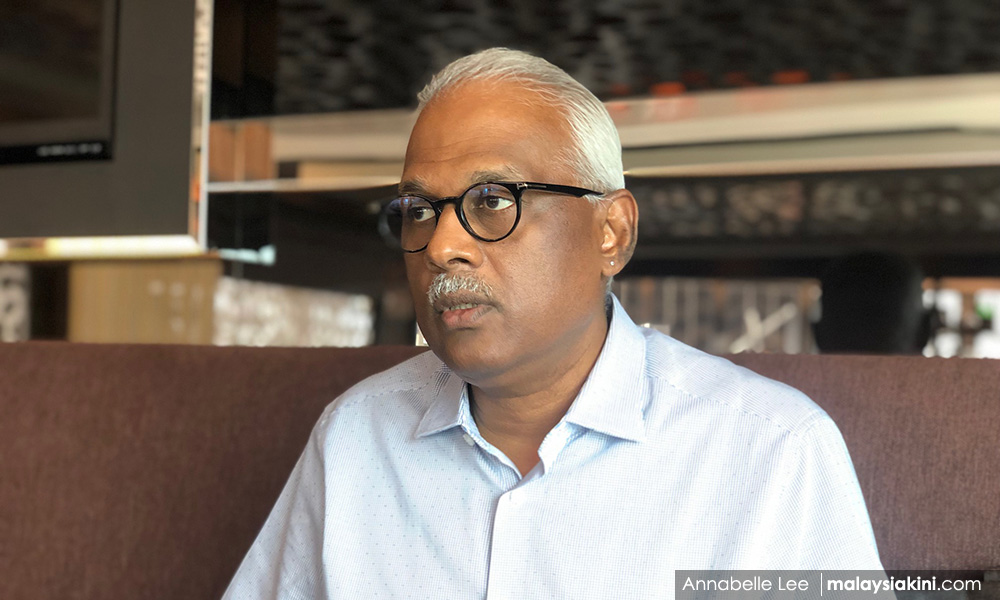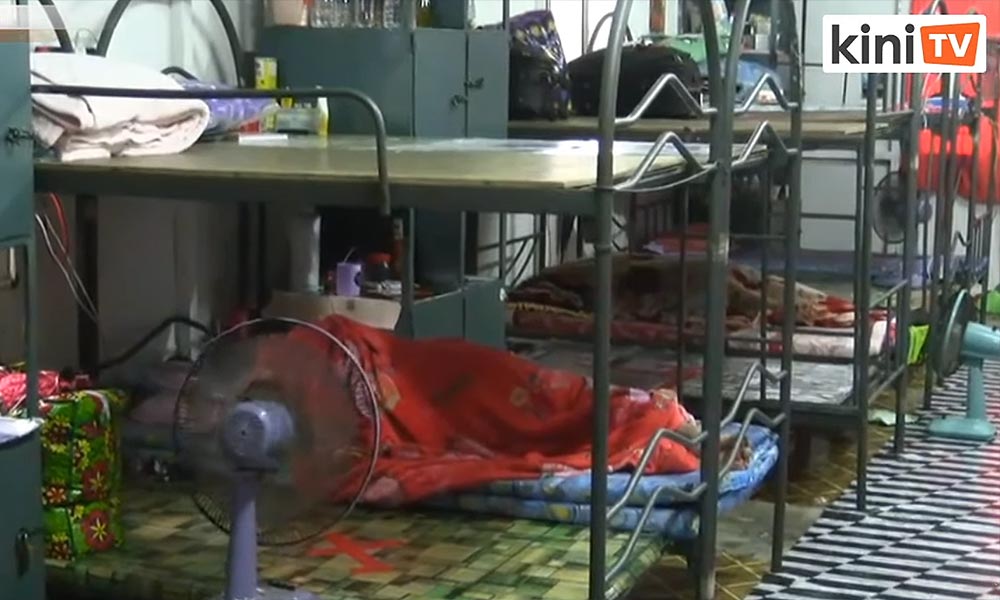MP: Free vaccines alone won't solve undocumented migrant crisis
Klang MP Charles Santiago has lauded the government's move to provide undocumented migrant workers with free Covid-19 vaccines but warned that there was a much larger problem that needed to be addressed.
He pointed out that the country has a large number of undocumented migrants that needs to be managed with a proper strategy in order to successfully contain the spread of Covid-19.
"This is a very serious issue that must not be ignored by the government. It needs a properly thought-out strategy to cope with the fact that there are an estimated 3.5 million undocumented migrant workers beyond the 2.1 million who are here legally.
"This is an enormous sub-community that by its very nature is outside the mainstream and if we do not solve the problems before the vaccination begins, we could easily have a situation where the herd immunity plan is foiled," he told Malaysiakini.
Charles repeated his call for the government to give a blanket amnesty for undocumented migrants and their employers.
He made this point as the Immigration Department had arrested many undocumented migrants last year despite initially promising no action against them if they came forward to get tested for Covid-19.
"In the case of Thailand, they made them documented. Right now, (in Malaysia) they are a very sizable group and not being managed at all.
"It's good that you pay for the vaccines, but without the amnesty, they are never going to come out and this defeats the purpose of immunisation.
"The undocumented migrants are outside of the ecosystem that we have, but then they can cause damage. If we can’t get herd immunity, they are likely to be a factor in that," he added.

Charles said there was an urgent need for a cabinet directive on the amnesty.
Right now, he said, employers were playing a wait-and-see game while the government did not appear to have an idea of how to manage the whole situation in a systematic fashion.
"The government needs to move in very quickly as the way it is presently being managed, workers who are already positive for Covid-19 are sent back to the same hostels with no physical distancing between them.
"I saw a case in Klang, with nine migrant workers who are all positive right next to other workers who are negative," he added.
He said that leaked images of quarantine dorms showed beds and workers huddled together without physical distancing.
Areas like toilets were at unacceptable hygiene levels, he said, adding that both of these were concerns, especially in controlling the spread of Covid-19.
There were also cases where quarantined workers were placed in two sections of the same floor with migrant workers who were negative but all sharing the same common facilities such as toilets, walkways and elevators, he added.
Empowering local government
Charles said that the way forward on this could be the handover of infected workers to a government facility to oversee patient management, if a company faced a situation where 10 employees have become infected.
"This has to be done at the local government level.
"The government should set up a task force led by local councils involving employers and professional groups including NGOs to help plan, monitor and implement the Covid-19 testing and recovery process within the jurisdiction of the council," he explained.
Right now the local government participated in raids with the Human Resources Ministry, but Charles believed they could play a larger role as the Health Ministry was overwhelmed and doesn't have the manpower to move very fast.

"Local councils will know which hotels are going to close or are having difficulties. They can use their authority to relocate the positive workers there.
"They must be empowered to handle the management of patients during quarantine," he added.
Fast track key proposals
Given the urgency in battling the epidemic, Charles also urged the initiation of turnkey projects in the construction of worker dormitories with fast-track approvals made possible.
"If companies go through the normal process by submitting their building plans, it will take one year plus for approval. Construction time will be three months at best, the certificate of Completion and Compliance could be another six months, so it could be two years."
Malaysia needs to cut through the bureaucracy, said the lawmaker.
"Another factor is that larger companies can afford this but small and medium enterprises (SMEs) won't be able to.
"In their case, the government, including state governments, could build these dorms on a turnkey basis and rent them out to SMEs that might not be able to build their own dormitories.
"This will also give them the authority to do regular checks to ensure that the compliance on safety and hygiene is followed," he said. - Mkini
✍ Credit given to the original owner of this post : ☕ Malaysians Must Know the TRUTH
🌐 Hit This Link To Find Out More On Their Articles...🏄🏻♀️ Enjoy Surfing!




















Post a Comment